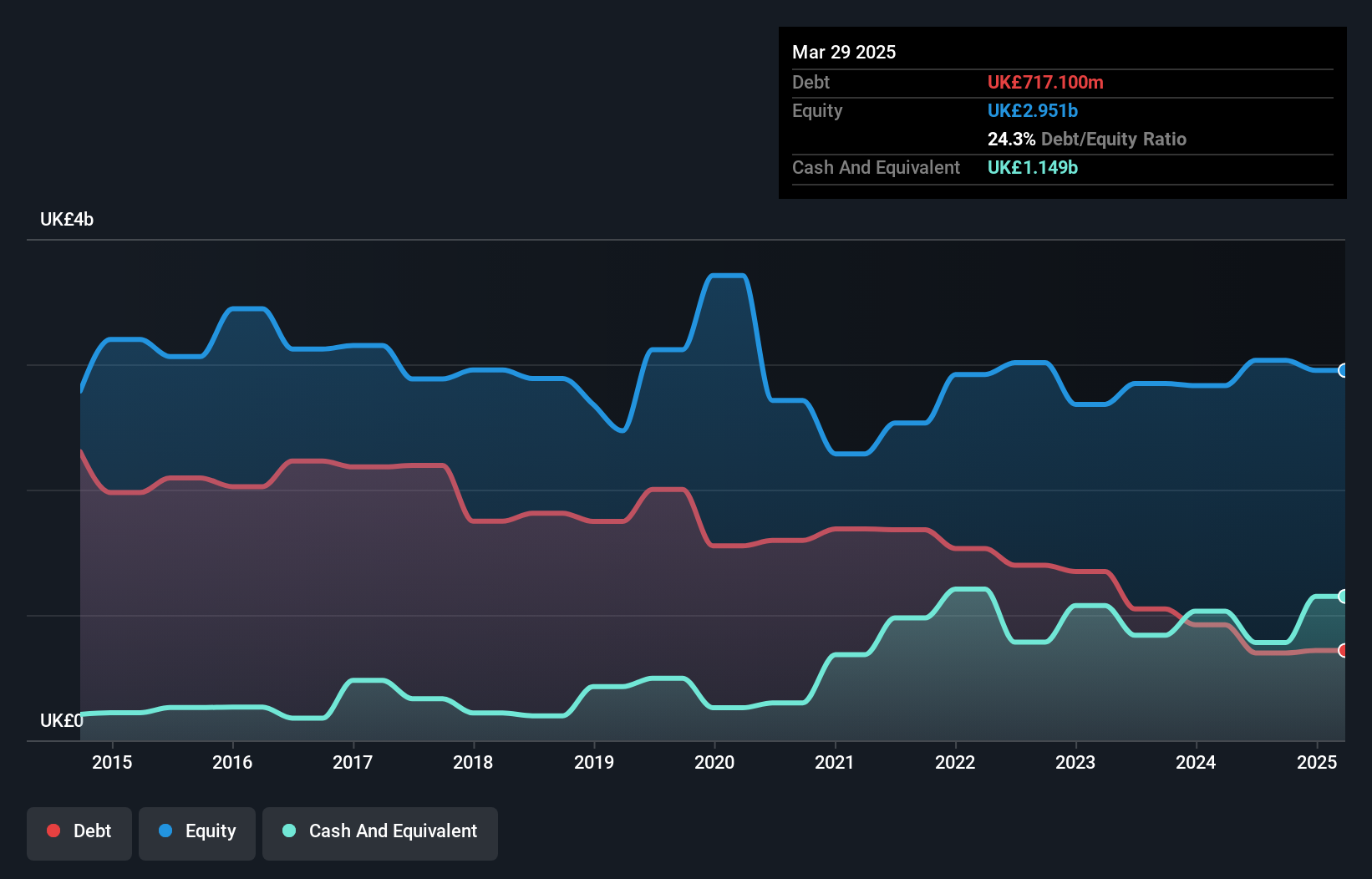Here's Why Marks and Spencer Group (LON:MKS) Can Manage Its Debt Responsibly
Some say volatility, rather than debt, is the best way to think about risk as an investor, but Warren Buffett famously said that 'Volatility is far from synonymous with risk.' So it might be obvious that you need to consider debt, when you think about how risky any given stock is, because too much debt can sink a company. Importantly, Marks and Spencer Group plc (LON:MKS) does carry debt. But the real question is whether this debt is making the company risky.
Why Does Debt Bring Risk?
Generally speaking, debt only becomes a real problem when a company can't easily pay it off, either by raising capital or with its own cash flow. Ultimately, if the company can't fulfill its legal obligations to repay debt, shareholders could walk away with nothing. While that is not too common, we often do see indebted companies permanently diluting shareholders because lenders force them to raise capital at a distressed price. Of course, debt can be an important tool in businesses, particularly capital heavy businesses. The first step when considering a company's debt levels is to consider its cash and debt together.
What Is Marks and Spencer Group's Net Debt?
As you can see below, Marks and Spencer Group had UK£717.1m of debt at March 2025, down from UK£921.7m a year prior. However, it does have UK£1.15b in cash offsetting this, leading to net cash of UK£431.6m.

A Look At Marks and Spencer Group's Liabilities
The latest balance sheet data shows that Marks and Spencer Group had liabilities of UK£2.78b due within a year, and liabilities of UK£3.09b falling due after that. Offsetting these obligations, it had cash of UK£1.15b as well as receivables valued at UK£271.5m due within 12 months. So its liabilities total UK£4.45b more than the combination of its cash and short-term receivables.
This is a mountain of leverage relative to its market capitalization of UK£7.27b. Should its lenders demand that it shore up the balance sheet, shareholders would likely face severe dilution. While it does have liabilities worth noting, Marks and Spencer Group also has more cash than debt, so we're pretty confident it can manage its debt safely.
View our latest analysis for Marks and Spencer Group
It is just as well that Marks and Spencer Group's load is not too heavy, because its EBIT was down 20% over the last year. When it comes to paying off debt, falling earnings are no more useful than sugary sodas are for your health. When analysing debt levels, the balance sheet is the obvious place to start. But ultimately the future profitability of the business will decide if Marks and Spencer Group can strengthen its balance sheet over time. So if you want to see what the professionals think, you might find this free report on analyst profit forecasts to be interesting.
Finally, a business needs free cash flow to pay off debt; accounting profits just don't cut it. Marks and Spencer Group may have net cash on the balance sheet, but it is still interesting to look at how well the business converts its earnings before interest and tax (EBIT) to free cash flow, because that will influence both its need for, and its capacity to manage debt. During the last three years, Marks and Spencer Group generated free cash flow amounting to a very robust 98% of its EBIT, more than we'd expect. That positions it well to pay down debt if desirable to do so.
Summing Up
While Marks and Spencer Group does have more liabilities than liquid assets, it also has net cash of UK£431.6m. The cherry on top was that in converted 98% of that EBIT to free cash flow, bringing in UK£806m. So we don't have any problem with Marks and Spencer Group's use of debt. When analysing debt levels, the balance sheet is the obvious place to start. However, not all investment risk resides within the balance sheet - far from it. To that end, you should be aware of the 1 warning sign we've spotted with Marks and Spencer Group .
At the end of the day, it's often better to focus on companies that are free from net debt. You can access our special list of such companies (all with a track record of profit growth). It's free.
New: Manage All Your Stock Portfolios in One Place
We've created the ultimate portfolio companion for stock investors, and it's free.
• Connect an unlimited number of Portfolios and see your total in one currency
• Be alerted to new Warning Signs or Risks via email or mobile
• Track the Fair Value of your stocks
Have feedback on this article? Concerned about the content? Get in touch with us directly. Alternatively, email editorial-team (at) simplywallst.com.
This article by Simply Wall St is general in nature. We provide commentary based on historical data and analyst forecasts only using an unbiased methodology and our articles are not intended to be financial advice. It does not constitute a recommendation to buy or sell any stock, and does not take account of your objectives, or your financial situation. We aim to bring you long-term focused analysis driven by fundamental data. Note that our analysis may not factor in the latest price-sensitive company announcements or qualitative material. Simply Wall St has no position in any stocks mentioned.
About LSE:MKS
Undervalued with adequate balance sheet.
Similar Companies
Market Insights
Community Narratives




